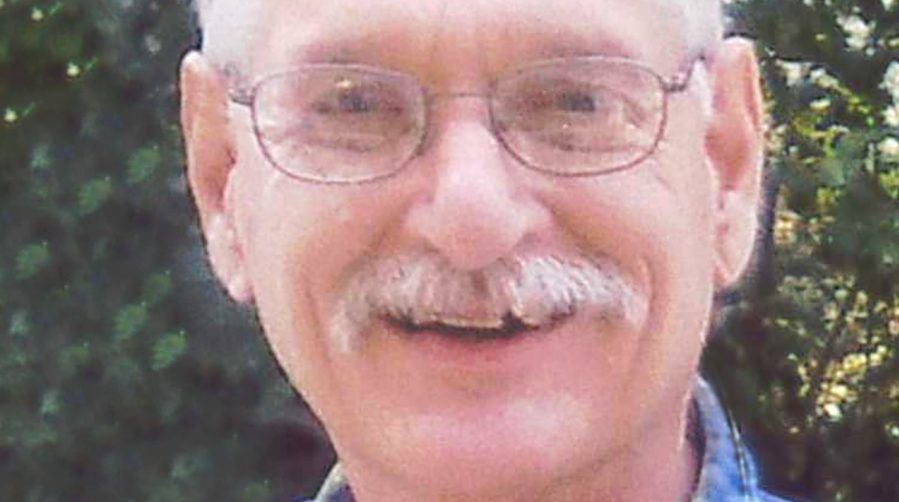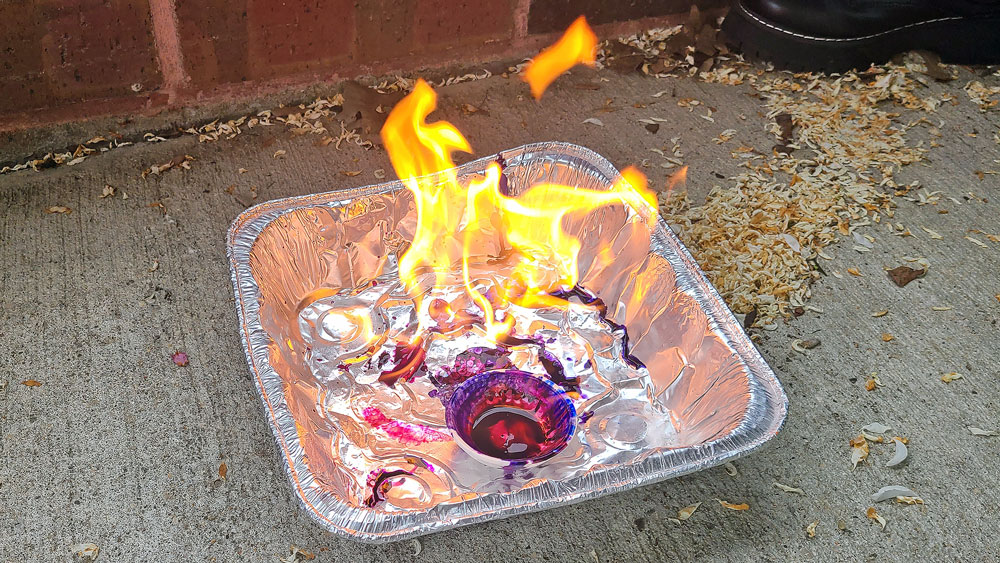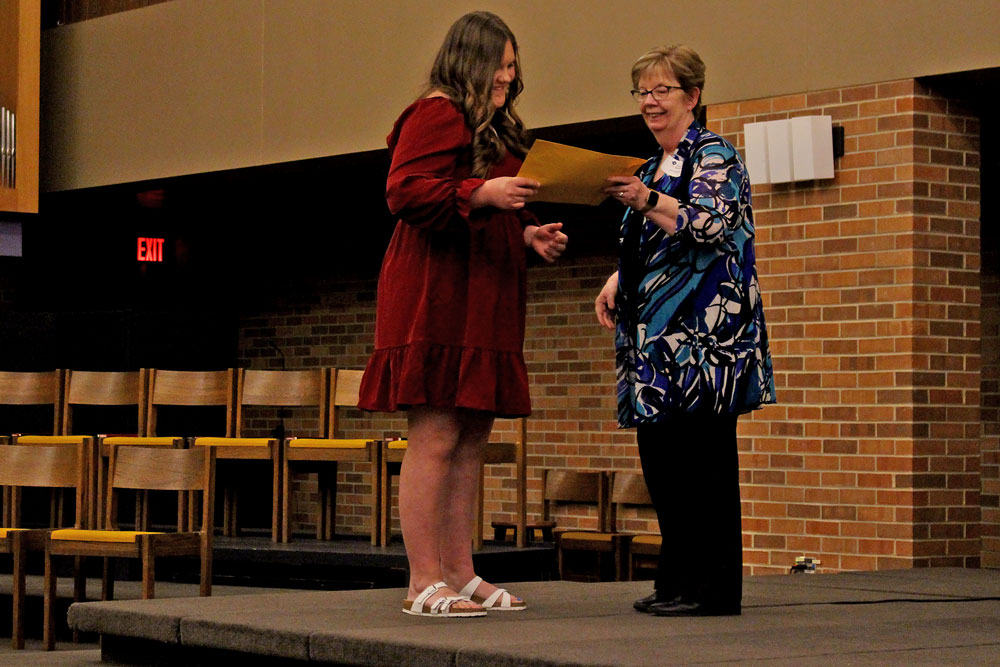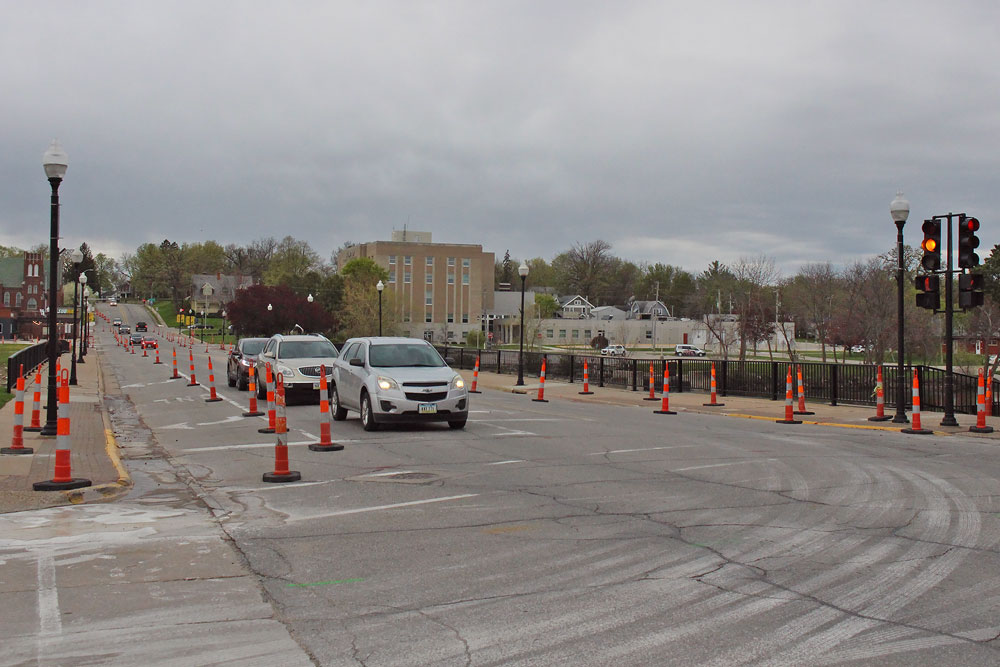Negative wind energy comments come out at latest Floyd County listening session
By Bob Steenson, bsteenson@charlescitypress.com
The first three joint meetings of the Floyd County Board of Supervisors and the Planning and Zoning Commission regarding a new county commercial wind power ordinance were mostly informational in nature, including the third held earlier this month, which was dubbed a listening post to gather comments and information from those interested.
The fourth meeting – another listening post, held last week – attracted both the largest crowd and elicited the most concern regarding alleged negative aspects of wind power.
Julie Kuntz, a Cerro Gordo County resident who has described herself as “working diligently to stop the onslaught of industrial wind over our rural communities,” said one of the concerns is that there aren’t adequate rules to protect eagles, bats and other flying animals.

She gave the members of the two boards a handful of handouts, and said that at a previous listening session a wind power company spokesperson had said that the county didn’t need to put anything in its ordinance to protect eagles, because the U.S. Fish and Wildlife Service already does that.
But she said that’s incorrect. Fish and Wildlife has guidelines, but they are not rules, she said, referring to a copy of a letter from that agency. The state also does not regulate wind farms, and she referred to a letter from the Iowa Department of Natural Resources that recommends areas that should not have wind turbines in them.
In Worth County, Kuntz said, the recommendations resulted in no part of a proposed wind farm area where turbines could be erected, so the developer did its own “high level desktop review” and determined that there were lots of places where wind turbines could go.
“Wind and solar ordinances need regulations to protect our natural resources,” she said. “We need to follow the experts. That is the Iowa DNR, U.S. Fish and Wildlife Service’s recommendations, and not rely on the multi-billion-dollar out-of-state corporation to have our county’s best interest at heart. To me, this is a no brainer. Include the DNR recommendations.”
She referred to setback limits that will be included in the Floyd County ordinance, which could be the setback for a wind turbine from a property line or from a residence, depending on what aspect of the turbine is being regulated.
“All landowners have a right to the enjoyment and use of their property,” Kuntz said. “But their property ends at their property line. I really feel strongly that the setbacks for noise and shadow flicker and for safety reasons need to be at the property line,” not from a residence on the property.
“Shouldn’t my family and I be safe on any part of our property as we would be in our home? Shouldn’t I be able to go out and garden? Shouldn’t my husband be able to be out working on his tractor? Shouldn’t my kids be safe playing in the land?” she asked.
She also asked the supervisors and the commissioners to look at the handouts she had given them or that she could send to them referring to decommissioning wind farms after their usable life is over, fire suppression systems on the turbines, drainage protection, radar interference and other concerns.
Supervisor Chair Mark Kuhn said she had gone over her allotted five minutes, but allowed her a little time more to talk about sound concerns, and she said that two public health boards had concluded that the low frequency sound generated by wind turbines can affect some people. She gave examples of a person with cochlear implants, children on the autism spectrum and others who seemed particularly affected by the sound, but said it can affect anyone.
“It’s a lot like seasickness,” she said. Some people aren’t affected at all and others are “heaving their guts out.”
Mason Kolbet said his wife and two children who have hearing impairments are unable to go to a friend’s home that is about 1,300 feet from a wind turbine because of the effect it has on them, even though it doesn’t bother him.
Jeff Gorball, a Worth County zoning commissioner who helped write that county’s wind energy zoning ordinance, suggested Floyd County consider shadow flicker, sound and safety as three different things and mentioned a way of measuring sound that he suggested is closest to how humans hear.
He also suggested making the rules protective, but also allowing landowners to voluntarily negotiate to waive some regulations if that makes sense for them on their land.
A couple of the people at the meeting had concerns and questions about decommissioning wind farms and what would happen if the company that ran it was no longer in business or abandoned the project.
John Robbins, a senior planner with the North Iowa Area Council of Governments (NIACOG) who is helping Floyd County write its new wind energy and also solar energy regulations, said the ordinance will require that a company provide proof of financial responsibility to take care of decommissioning a wind farm when it’s no longer usable.
That could be through a surety bond or other financial security that would provide the funds needed for the county to dismantle the wind turbines and restore the land if the company was no longer around to do so.
Answering several other questions, Robbins, supervisors or industry representatives also at the meeting said:
• Fire liability – Robbins said the ordinance would require liability coverage for the developer or operator. Supervisor Jim Jorgensen said fire chiefs are very interested in determining how fires start and would be involved in determining liability.
• Lighting – Systems that would only turn the red blinking lights on at night when an airplane is in the area are available, but the Federal Aviation Administration would have to determine if that system would be allowed on a specific project, whether the ordinance called for it or not.
• Private air strips – Invenergy County Outreach Manager Merlin Bartz told Roger Mulcahy that separation distances would be allowed for private air strips just as they will be for the regional airport.
• Land easement agreements currently being signed – Kuhn said there is currently a moratorium on wind turbine projects while the ordinance is being rewritten, and no company has applied for a permit. If there is something in a landowner agreement now that turns out to go against the ordinance, the developer will be bound by the requirements of the ordinance.
• Timeline – Robbins said the county has been working on the process for about two months and he has begun writing a draft of a possible ordinance. A meeting of the Planning and Zoning Commission is tentatively scheduled for March 7 where the commissioners will provide feedback, then Robbins will likely take that feedback to a Board of Supervisors meeting March 11 where the supervisors will decide if more listening sessions need to be held. The goal is to complete the process within the next three to four months.
Toward the end of the session, Kuhn read two letters the county had received that supported wind energy.
The letter from Patrick Merfeld said he lived within two miles of turbines and works within one mile and has had no ill effects from living there. He sited statistics that he said show the biggest cause of eagle death is being hit by vehicles, followed by lead poisoning from ingesting lead shot, followed by loss of habitat.
He said it is true that turbines kill bats, but research is being done on ways to keep bats away from turbines.
He cited studies that he said show no connections between wind turbines and negative effects on human health, and said there are plenty of other things that generate low frequency sounds.
“I believe that turbines provide an essential method of producing clean energy, freeing us from reliance on fossil fuels. I think opponents of wind turbines are promoting needless damage to our environment by extending the use of fossil fuels and promote having to look at risky energy sources such as nuclear power,” he wrote.
Another letter, from John Merfeld, said he was in favor of maintaining the county ordinance as it is, and said wind energy “offers landowners the opportunity to diversify farm income with a reliable source of income.”
At the beginning of the meeting, held at the Floyd County Law Enforcement Center in Charles City, Supervisor Kuhn said he had been asked by several of the people in attendance if they could give up their allotted five minutes of time to allow a 23-minute video to be played at the start of the meeting, which Kuhn agreed to.
The video, “Blown Away: The People Vs Wind Power,” by former Fox News political talk show host Tucker Carlson, alleged to show “the destructive effects of wind energy,” and how companies are targeting the poorest rural communities to locate wind farms because rich people don’t want the turbines where they can see them.









Social Share